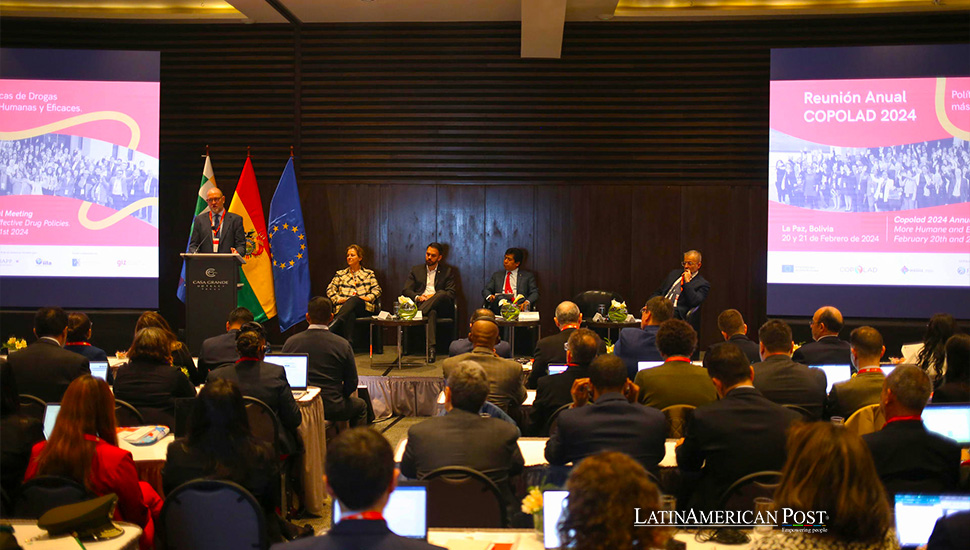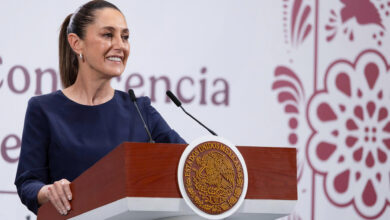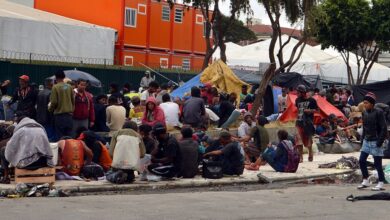Shaping a New Era: Latin America and European Union Forge Humanitarian Drug Policy Path

In a landmark gathering in Bolivia, over 150 officials from national agencies and 42 drug enforcement agencies across various countries convene to explore more humane and effective drug policies, signaling a pivotal shift in the global drug policy landscape.
This week, Bolivia becomes the epicenter of a crucial dialogue as more than 150 leaders from national bodies and 42 drug enforcement agencies across different nations gather in La Paz. This assembly, marking the third annual meeting of cooperation between Latin America, the Caribbean, and the European Union (EU) on drug policy, aims to pivot towards more humane and practical approaches in the ongoing battle against drug-related issues. The presence of notable figures such as Spain’s Interior Minister, Fernando Grande-Marlaska, and Bolivia’s Minister of Government, Eduardo del Castillo, underscores the meeting’s significance.
The discussions, spread over Tuesday and Wednesday, are not just about policy-making; they represent a collective effort to foster a technical and experiential exchange on drug policies through the EU-CELAC (Community of Latin American and Caribbean States) Drug Cooperation and Coordination Mechanism, co-chaired by Bolivia and Belgium. This forum signifies a growing recognition of the need for a paradigm shift in how drug offenses, particularly minor ones, are addressed—moving away from punitive measures and towards alternatives that emphasize rehabilitation, social inclusion, and the dismantling of drug trafficking networks.
Borja Díaz, the director of the COPOLAD/FIIAPP annual cooperation meeting, highlights the meeting’s focus on multi-actor approaches and interinstitutional coordination. The aim is to foster dialogue on comprehensive solutions that span alternative and sustainable development, international cooperation in tackling drug trafficking and money laundering, and regulating precursor chemicals.
Improving Access to Care and Social Inclusion
The gathering will delve into the vulnerabilities of specific groups and seek ways to improve access to quality care and social inclusion for problematic drug users. Experts, including Lauren Laniel from the European Monitoring Centre for Drugs and Drug Addiction, will address the global governance challenges posed by the illegal drug market. Additionally, Daniel Radio, Secretary-General of Uruguay’s National Drug Board, will share insights on addressing problematic drug use in vulnerable contexts.
This holistic approach to drug policy is echoed by the diverse attendance, which includes representatives from drug agencies, justice systems, the Ibero-American Association of Public Ministries, and the Conference of Ministers of Justice of Ibero-American Countries, among others. Their participation underscores a collective commitment to integrating various perspectives and expertise in crafting a more compassionate and effective drug policy framework.
The EU’s delegation head in Bolivia, Michael Dócczy, articulates the essence of this partnership: a shared commitment to protecting society’s well-being, promoting public health, and ensuring a high level of security for the population. This statement reflects a broader consensus on the need for drug policies that are not only effective in curbing drug use and trafficking but also humane and respectful of individual rights and societal health.
The Bolivia meeting is more than a policy discussion; it symbolizes the evolving global stance on drug policy. Latin American countries, historically on the front lines of the drug war, are increasingly advocating for policies that prioritize human dignity, health, and social integration over punitive measures. This shift is influenced by the lessons learned from decades of drug war policies that have often exacerbated violence, social exclusion, and health crises without effectively reducing drug supply or demand.
Pioneering Progressive Drug Policies
Countries like Uruguay, which has pioneered progressive drug policies, including the legalization and regulation of cannabis, offer valuable lessons in addressing drug issues through public health and human rights lenses. The experiences of Latin American nations and European perspectives can reshape the international drug policy landscape, emphasizing cooperation, compassion, and evidence-based strategies.
Also read: Mexican Armed Forces Uncover Largest Meth Lab Amid Uptick in Drug Trafficking
As the meeting in Bolivia unfolds, it signals a hopeful shift towards drug policies that recognize the complexity of drug use and trafficking as issues that cannot be solved through enforcement alone. By prioritizing humane approaches and international cooperation, Latin America, the Caribbean, and the EU are paving the way for a new era in drug policy—one that promises not only to reduce the harms associated with drugs but also to enhance the health, security, and well-being of societies globally. This collaborative effort marks a significant step in redefining the global response to drugs, moving away from a history of punitive measures and towards a future of compassionate, comprehensive solutions.





